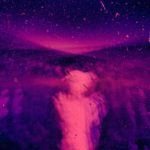 While at the moment the metaverse is more marketing hype than substance, the hope of vendors is that virtual experiences will come to mimic those in the real world. A sign of the potential was demonstrated in a recent study from the University of Bristol, which showed how VR experiences can elicit the same reaction as that found when people take a medium dose of LSD.
While at the moment the metaverse is more marketing hype than substance, the hope of vendors is that virtual experiences will come to mimic those in the real world. A sign of the potential was demonstrated in a recent study from the University of Bristol, which showed how VR experiences can elicit the same reaction as that found when people take a medium dose of LSD.
Participants are presented in the virtual space as a cloud of smoke, with a ball of light roughly where their hearts might be. They can then engage in an experience, called energetic coalescence, whereby they gather in the same virtual spot as their colleagues and allow their cloud bodies to overlap such that it becomes impossible to tell where each begins and ends. This produces a significant level of connectedness and their ego attenuation is similar to the feelings one might enjoy when engaged in a psychedelic experience.
Mind-altering
Psychedelic drugs have quite a negative perception, but their ability to change how we process information has found valuable uses in areas such as depression, addiction, and post-traumatic stress disorder.
While the Isness-D technology that is at the heart of the research was not designed to replicate a psychedelic trip, there was a clear interest in exploring how so-called “self-transcendent experiences” could be replicated in VR.
Such experiences can range from getting lost in a good book at one end to the kind of ego death induced by psychedelics on the other. In clinical trials, those who are able to experience more intense feelings generally see the biggest improvements. The researchers believe that Isness-D is a feasible route to achieving such transcendence.
Transcendent experiences
The researchers recruited 75 volunteers and measured the emotional response each of them had to the Isness-D environment. The measurements were based upon four distinct metrics that are commonly used in psychedelics research: the “communitas” scale, the ego dissolution inventory scale, the MEQ30, and “inclusion of community in self” scale.
Across each of the four metrics, the platform was able to induce responses that were indistinguishable from those achieved via a medium dose of psychedelics. While there is obviously more research required to examine the long-term effects of the VR experience, and indeed whether the platform is capable of truly replicating the sensations and physiological changes of psychedelics.
There has already been one startup, called aNUma, that has spun out of this work and aims to allow people to register for Isness sessions on a weekly basis. The shortened sessions are offered as part of “virtual wellness retreats”. This promises to certainly be an interesting area to follow in the years ahead.